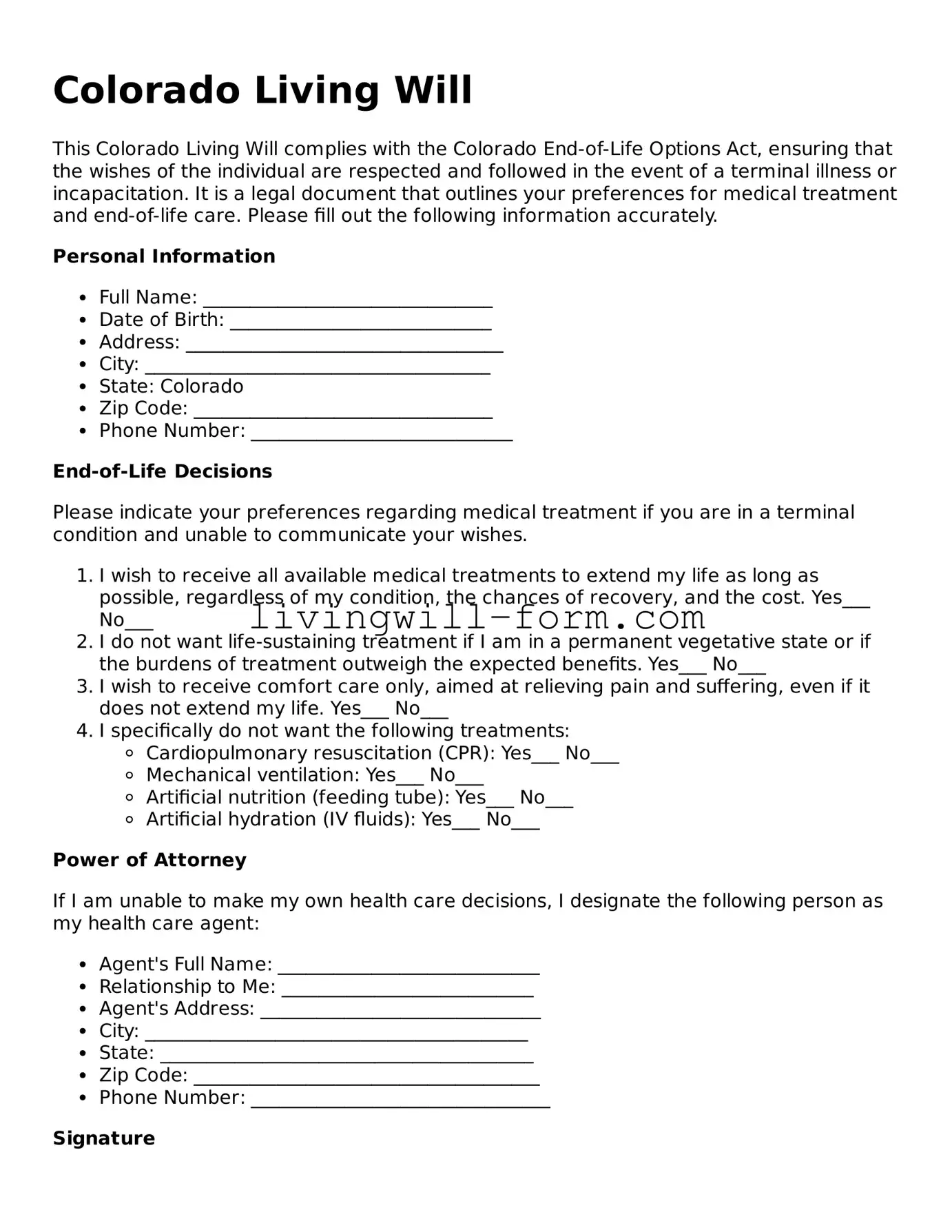What is a Colorado Living Will?
A Colorado Living Will is a legal document that allows an individual to outline their preferences regarding medical treatments and life-sustaining measures in the event they are unable to communicate their decisions due to illness or incapacity. It is a way to ensure that one's healthcare wishes are known and considered.
Who should have a Living Will in Colorado?
Any person over the age of 18 who wishes to have control over their medical treatment should consider having a Living Will. It's particularly important for those with strong preferences about end-of-life care or those with serious health conditions.
How does one create a Living Will in Colorado?
To create a Living Will in Colorado, the individual must complete a Living Will form, which outlines their healthcare preferences. This form must be signed in the presence of two witnesses, who also sign the form, attesting that the individual is of sound mind and is making their healthcare decisions voluntarily.
Are there specific requirements for witnesses in Colorado?
Yes, the witnesses must be at least 18 years old. Additionally, the witnesses cannot be the individual's healthcare provider, an employee of a healthcare provider, the designated agent (if one is named in a medical power of attorney), or anyone who has claims against the individual's estate.
What should be included in a Colorado Living Will?
The document should clearly state the individual's preferences regarding life-sustaining treatment, including the use of ventilators, feeding tubes, and CPR, in situations where recovery is unlikely. It can also designate a healthcare agent to make decisions when the individual cannot.
Can a Living Will be revoked or changed in Colorado?
Yes, a Living Will can be revoked at any time by the creator, regardless of their mental state. This can be done through a written, dated statement, by destroying the original document, or by verbally expressing the intent to revoke it in the presence of a witness. To make changes, a new Living Will must be completed and signed.
What is the difference between a Living Will and a Medical Power of Attorney in Colorado?
A Living Will specifically addresses the use of life-sustaining treatment when the individual is terminally ill or in a persistent vegetative state. A Medical Power of Attorney appoints a healthcare agent to make medical decisions on the individual's behalf, not limited to end-of-life care.
Does a Colorado Living Will need to be notarized?
No, a Living Will in Colorado does not need to be notarized. However, it does need to be signed by two witnesses who meet the state's requirements.
Where should a Living Will be kept?
After it is signed, the Living Will should be kept in a place where it is easily accessible. Copies should be provided to the individual's healthcare provider, to the appointed healthcare agent (if one is named), and to any loved ones who may be involved in healthcare decisions.

